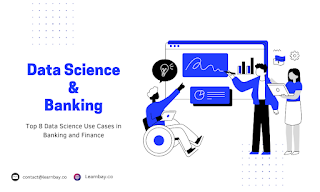Big Data Challenges in 2023
Organizations spend extensively on big data analytics and technology to get insights and boost operational effectiveness. The amount of data being created is growing rapidly due to the internet, social media, and the IoT's fast development. Therefore, better methods and tools are required to gather, shop, examine, and derive insights from this data which you can learn through a comprehensive data science course in Bangalore, accredited by IBM.
Furthermore, the expansion of the global data sphere and the anticipated expansion of the big data market's size implies that big data will continue to be a crucial engine for innovation and expansion across various sectors. According to 79% of executives who participated in Accenture research, businesses that do not adopt big data risk going out of business.
Moreover, improvements in big data technologies, including machine learning, artificial intelligence, and natural language processing, are anticipated. These technologies empower companies and organizations to decide more wisely, acquire a competitive edge, and enhance consumer experiences.
Efficient Use of Big Data
Healthcare
Big data is being utilized to enhance patient care, diagnose diseases, and enhance the effectiveness of treatments. For instance, healthcare professionals can examine electronic health information to find patterns and trends that could aid in early illness diagnosis and patient outcome prediction.
Moreover, hospitals and healthcare institutions may improve patient flow and wait times by using big data analytics to streamline their operations.
Finance
Big data is used to analyze risk, identify and stop fraud, and customize financial services and products. To create individualized marketing campaigns and offers, banking institutions, for instance, can utilize big data to study client behavior and preferences. Big data analytics may also aid banks and other financial institutions in detecting fraud and mitigating the risk of financial crime.
Retail
Big data is being utilized to enhance consumer loyalty, tailor the shopping experience, and improve inventory management. For instance, businesses may utilize big data to study consumer behavior and preferences to create marketing campaigns focused on suggestions unique to each customer. Big data analytics may also assist retailers with supply chain efficiency, waste reduction, and inventory optimization.
Manufacturing
Big data is being utilized to enhance quality control, decrease downtime, and optimize manufacturing processes. In order to minimize downtime and improve production schedules, businesses may utilize big data to track the operation of their equipment and anticipate maintenance requirements. Big data analytics may also assist firms in decreasing waste and improving product quality by assisting in the early detection of quality problems.
Transportation
Big data is being utilized to streamline transportation systems, ease traffic, and boost security. For instance, transportation companies may evaluate traffic patterns and improve routes using big data, cutting down on congestion and trip time. Big data analytics may also assist transportation businesses in tracking vehicle performance and spotting possible safety problems, which can reduce accidents and boost overall safety.
Big data is generally being utilized efficiently across various businesses to promote innovation and create value, increase operational effectiveness, save costs, and boost customer happiness. Big data has advantages, but there are also drawbacks that must be considered.
The following are some potential difficulties that big data may encounter in the future:
Challenges Faced by Big Data
Data Privacy and Security
As the amount of data gathered and kept rises, so does the potential for data breaches and cyber-attacks. It will be crucial to protect sensitive data, especially as more companies start storing their data in the cloud.
Data Quality
The likelihood of data errors and inconsistencies increases as data volume rises. Since the data comes from many different sources, it will be harder and harder to ensure its quality and accuracy.
Data Management
Large data sets can be difficult to manage and expensive. To properly manage and handle the data, businesses must invest in the necessary tools and technology.
Talent Shortage
There may be a lack of trained people with the requisite abilities to analyze and understand big data due to the increased demand for experienced data experts.
Data Integration
Integrating and merging data that is obtained from numerous sources can be difficult. This can cause delays in the processing and analysis of data.
Ethical Use of Data
Ensuring data is utilized ethically and responsibly becomes more crucial as the amount of data gathered increases. Addressing issues with bias, fairness, and transparency is part of this.
Scalability
Businesses will need to ensure that their infrastructure and systems can expand to handle the increased data load the volume of data keeps increasing.
Conclusion
These issues might hinder the efficient application of big data across various sectors, including healthcare, banking, retail, and others. It will need continual investments in technology and people and a dedication to the moral and responsible use of data to meet these challenges. Further, you can start a lucrative career by registering in the best data science course in Pune, offered exclusively for people wanting a career move to data science and AI.




Comments
Post a Comment